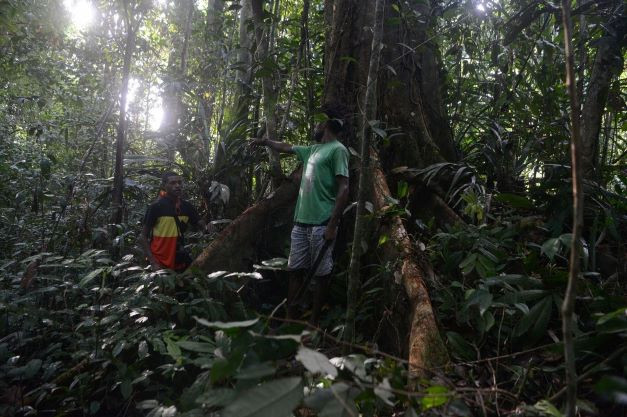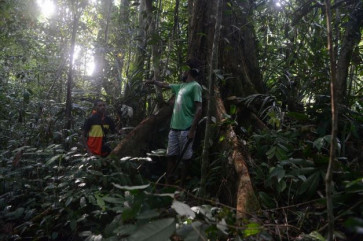Popular Reads
Top Results
Can't find what you're looking for?
View all search resultsPopular Reads
Top Results
Can't find what you're looking for?
View all search resultsAssessing international forest carbon trading in Indonesia
Indonesia's forest carbon supply is abundant and the demand for carbon from the voluntary market will multiply five to 15 times by 2030 due to difficulties faced by developed countries to achieve their NDC targets.
Change text size
Gift Premium Articles
to Anyone
In a Cabinet meeting earlier this year, President Joko “Jokowi” Widodo once again addressed the issues and opportunities of carbon trading and how Indonesia could immediately take advantage of it. The meeting was a follow-up to Presidential Regulation No. 98/2021 on carbon economic value (NEK), and Environment and Forestry Ministerial Regulation (Permen LHK) No. 21/2022 on the implementation procedure of NEK.
It is understandable that the government is enthusiastic about this issue because of its tremendous potential revenue. According to the available data, the value of Indonesia's carbon economy could reach up to US$565.9 billion. Indonesia's largest carbon emitting sectors are forestry and land, energy and transportation, followed by industry, agriculture and waste.
Specifically in forest carbon, Indonesia’s forest area of about 125 million hectares has tremendous emission absorption potential. According to rough calculations, about 25 billion tonnes of CO2 equivalent is expected to be absorbed by forests, most of which is eligible for trading. However, the amount of carbon released and sequestered from the atmosphere depends on the quality of carbon measurements and the sector's capacity and capability to undertake climate change mitigation and adaptation actions.
The Environment and Forestry Ministry as the Indonesian climate change focal point is responsible for measuring greenhouse gas emissions at the national level. However, it should not be forgotten that climate change is a global issue, so the ministry must also refer to global measurement methods and agreements under the United Nations Framework Convention on Climate Change (UNFCCC).
The Paris Agreement, which has been ratified through Law No. 16/2016, should therefore be an important reference for how these emission measurement mechanisms and carbon trading schemes are implemented at the national and international levels.
The government is aware of the huge potential of Indonesia's forest carbon trading. In the context of climate change, this opportunity can be utilized to obtain additional funding for climate change mitigation and adaptation, and increase resilience and reduce vulnerability to climate change impacts in the country.
Based on Permen LHK 21/22, anyone can be involved in carbon trading. The requirement is to fulfill the obligation to contribute to greenhouse gas emission (GHG) reduction as outlined in the Nationally Determined Contribution (NDC). Then, to obtain an Indonesian GHG Emission Reduction Certificate (SPE GRK), the carbon trader must go through the process of registration, measurement, verification and validation, which is determined by the ministry.



















